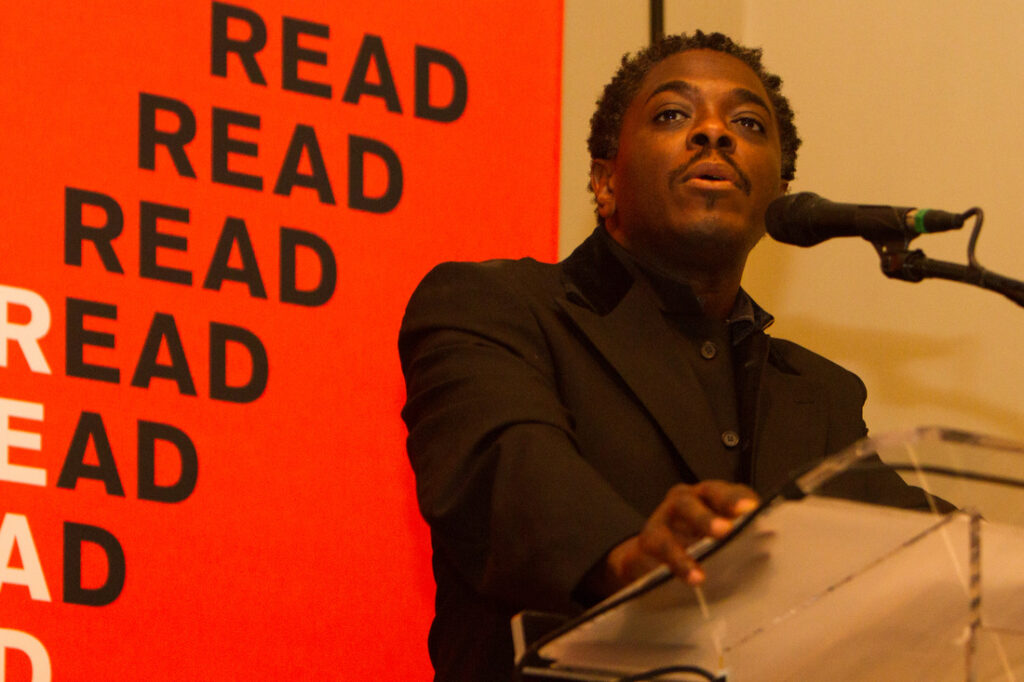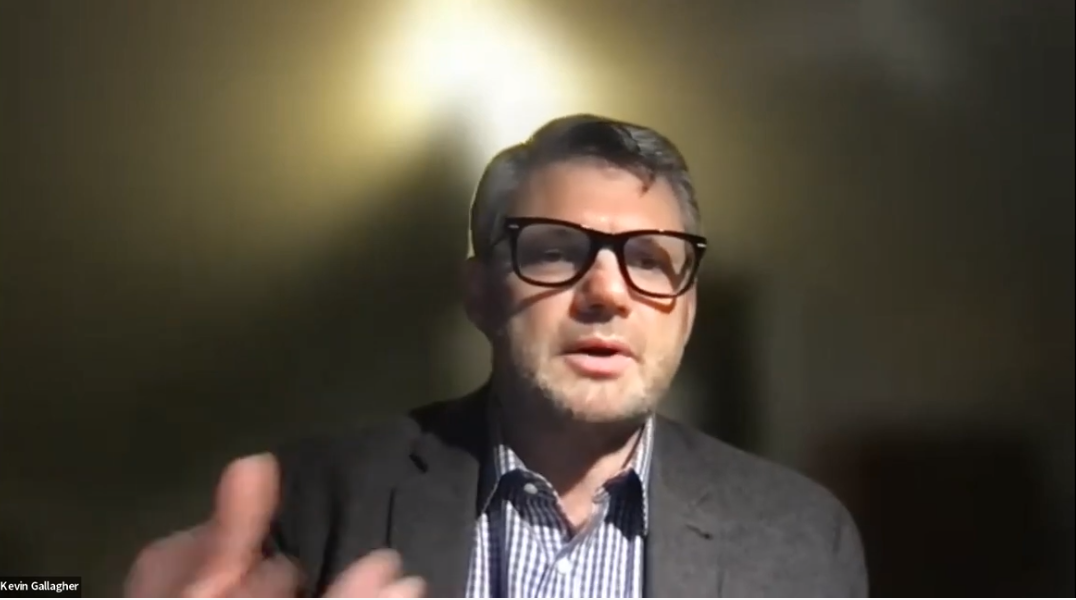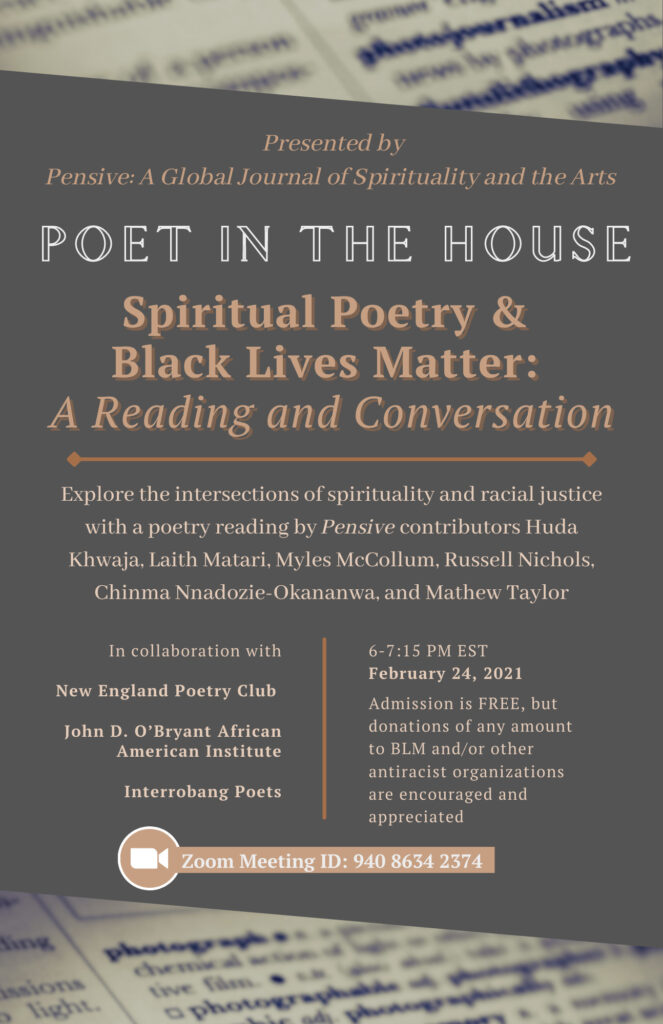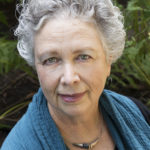There are a growing number of poetry books ‘set’ in another time, and are often referred to as ‘docupoetics.’ There are many varieties of docupoetics that can be traced to ancient times. Famous 20th century books that are now being called antecedents of the current wave of docupoetics include Muriel Rukeyser’s The Book of the Dead, Paterson by William Carlos Williams, Testimony by Charles Reznikoff, Octavio Paz’s Sunstone, and many others. In this century two classics are Kevin Young’s Ardency and Whereas by Layli Long Soldier.
Poet in the House
POET IN THE HOUSE with Danielle Legros Georges
Join us March 7, 2021, 3 pm (EST)!
Literary Translation 101
This session will offer an introduction to literary translation for writers; working on the basis that flexibility and skill in English are the most important requirements for participants. You need not know or have studied a foreign language. We will explore the fundamental questions of translation.
Bio
Danielle Legros Georges is a writer, translator, academic, and author of several books of poetry including The Dear Remote Nearness of You, winner of the New England Poetry Club’s Sheila Margaret Motten book prize. She directs the Lesley University MFA program in Creative Writing. Her awards include fellowships from the Massachusetts Cultural Council, the Boston Foundation, and the Black Metropolis Research Consortium. In 2015 she was appointed Boston’s second Poet Laureate. Her most recent work is a book of translations from the French, Island Heart: The Poems of Ida Faubert, published by Subpress Collective in 2021.
Zoom link will be sent via the NEPC newsletter; becoming a member is easy! https://nepoetryclub.org/membership/
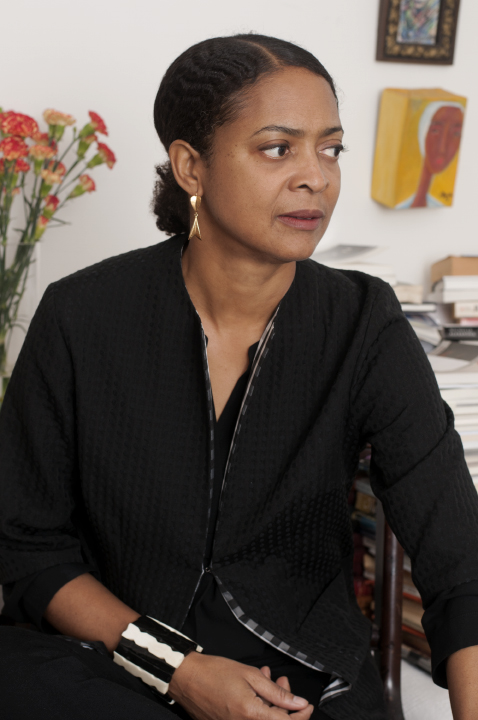
POET IN THE HOUSE with Donald Wellman (NEPC member event)
January 28, 2021, 7 pm
THE SERIAL POEM
This workshop and discussion concerns the making of the serial poem. The focus falls on discontinuity and possibilities for coherence. One particularly difficult example is John Ashbury’s “The Skaters” remains relevant. [“The Skaters” is available at Microsoft Word – Ashbery_Skaters.docx (text-works.org); both text and audio are available at both text and audio: http://writing.upenn.edu/pennsound/x/Ashbery/the_skaters.php]
“The Skaters” often appears to make sense locally, inviting the reader to expect to make global sense of the poem. Instead, one encounters an intractable flux of verbal “found objects,” shifting styles and registers, teasing literary allusions and echoes, fragmentary narrative episodes and descriptive scenes. How is one to negotiate or manage such flux? Critics tend to select “key” lines or passages, treating these as interpretative centers or “nodes” around which to organize the heterogeneous materials of the poem. (How (Not) to Read Postmodernist Long Poems: The Case of Ashbery’s“ The Skaters.” Brian McHale, Poetics Today (2000) 21 (3): 561–590. https://doi.org/10.1215/03335372-21-3-561
The driving force behind a series composed of discontinuous elements is often rhythm, not explanation. In “The Skaters” there are thematic clusters related to childhood or entropy, but Ashbury is not building a stick house. Integrity of construction matters not so much does rhythm and its vicissitudes. Ashbury’s central poetic act is to frustrate form, making meaning difficult or impossible to discover. The willful meaningless of the series in JA’s practice has often been discussed. “It is madness to explain” he warns us.
This a lesson that I learned from Antonio Gamoneda, a Spanish poet whom I translate. He advised me not to explain, instead my job was to capture the music, to allow it to be heard or come across. JA ‘s music finds novelty in discontinuity. It is not a new practice though the shock of novelty in his case may verge on the extreme. Like many readers I have sought to unravel the inscrutable sources that underlie such utter discontinuity. For me, the source of poetic novelty lies in a blending of documentary, that is objective elements, camera work perhaps, and imaginary or fantastic elements, perhaps surreal impulses that cast their unverifiable or fictional shadows, necessary, moments that engage shadows or abysses. How does one end such a series? Cascade or torrents of energy my break into lulling discontinuities. The final image is never enough. “The Skaters” takes 42 minutes to read. Between images understood as facts, the energy of interpolated fictions are often generative of possible meanings. Fiction is then a form of making that is poetry. One that provides context and techniques of abruption. Such poetics may be differentiated from prosody and governs what might be called the very rhythms of the series. The introduction of unexpected but novel elements often requires fictive bridges. That may also have been Wallace Stevens’s conviction. “The poem is the cry of its occasion, / Part of the res itself and not about it.” No explanation possible.
Here are some lines from a short poem, “To be continued” from Kate Colby’s The Arrangements (2018):
“Shrill light from snow / yellows in the window // a frizzle of dead / baby’s breath.” Discontinuous images that do and do not resolve in “I can’t exist / any/more.” It’s always difficult to find a resting place in a poem composed of discontinuous elements.
Participants will discuss how the concepts advanced in this note are true of their work or of the work of a poet they admire. I
BIO: Donald Wellman, poet, editor, and translator, his recent book of poetry are Crossing Mexico and Essay Poems (Dos Madres: Loveland OH). Other books from Dos Madre include The Cranberry Island Series and A North Atlantic Wall. Roman Exercises is from Talisman. Prolog Pages was issued by Ahadada ; Fields (Light and Dust). For several years, he edited O.ARS, a series of anthologies, devoted to topics bearing on postmodern poetics. Books of poetry in translation include Emilio Prados, Enclosed Garden, (Lavender Ink / Diálogos); Antonio Gamoneda, Description of the Lie (Talisman) and Gravestones, (UNO Press). His translation of Roberto Echavarren’s The Espresso Between Sleep and Wakefulness is from Cardboard House. His translation of Echavarren’s The Virgin Mountain is from Lavender Ink. A translation of Néstor Perlongher’s Cadavers is from Cardboard House. Recent critical work includes Albiach / Celan: Reading Across Languages. His Expressivity in Modern Poetry from Fairleigh Dickinson.
Zoom link will be sent to NEPC members.
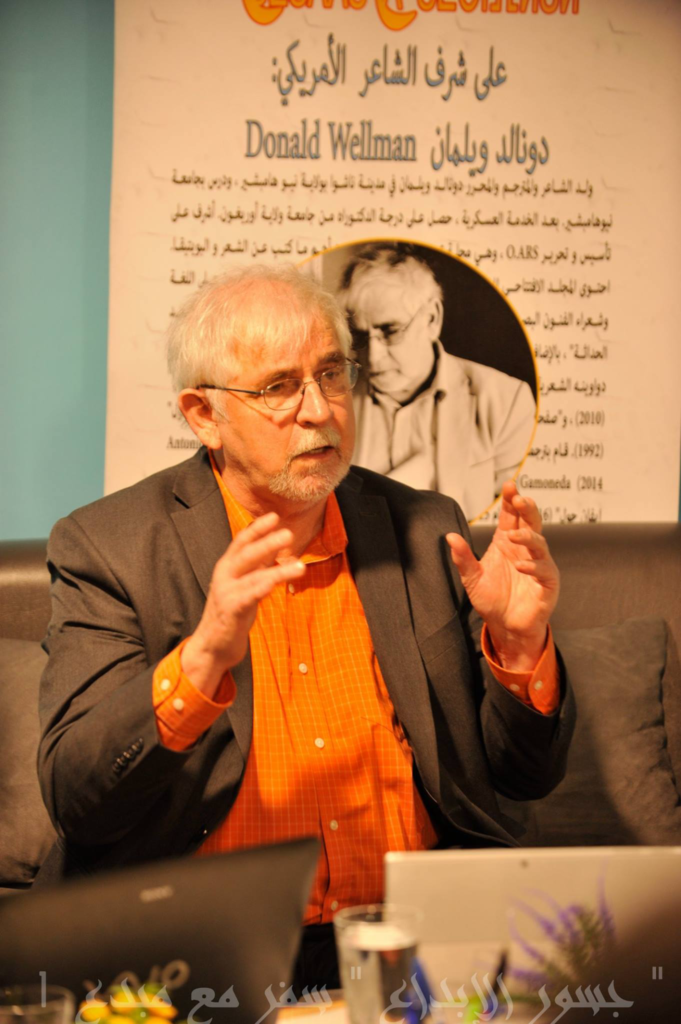
POET IN THE HOUSE with Michael Shapiro (NEPC member event)
Sunday, February 7, 2021, 1 pm (EST) via Zoom
Some Ferocious Yiddish Poets
New York’s Yiddish-speaking Lower East Side was the scene of intense literary, theatrical, cultural and political activity in the early Twentieth Century. If you were “on the Right”, that meant you were Socialist. If you were “on the Left”, that meant you were Communist. It’s an America that’s hard to remember. The Yiddish newspapers were full of literature and poetry. I’ve read an estimate that Moyshe-Leyb Halpern was read by a million people a week. A poet. In America.
I’ll talk a little bit about Yiddish, a little bit about Yiddish literature. I’ll read some poems, mostly in translation, but occasionally along with the originals. I’ll bemoan the perils of translation. I’ll show some of my artwork inspired by these poems. I’ll recommend some books.
This event will take place on Zoom; the link will be sent out in the member newsletter a day or two before the event. If you’re not a member yet, please consider joining–it’s easy! https://nepoetryclub.org/membership/
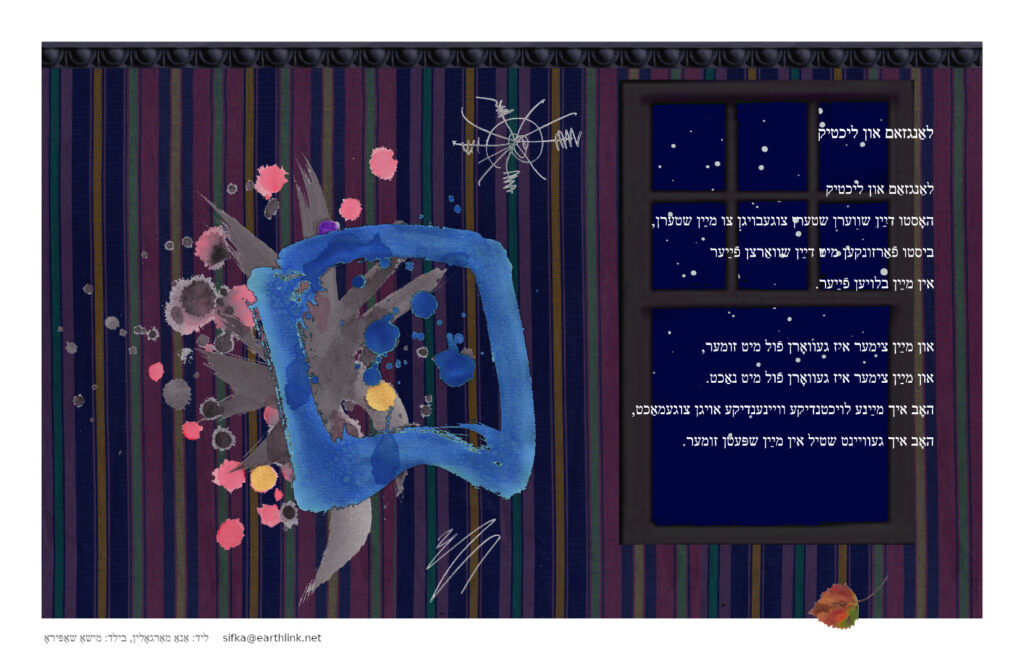
POET IN THE HOUSE with Wendy Drexler, December 5, 3 pm (NEPC member event)
Free-Writing Your Way into a Poem
This will be a generative workshop for NEPC members based on a technique I’ve been using for 20 years that I learned from my mentor and dear friend, Babara Helfgott Hyett. Many (most?) of my poems begin as free-writes generated during a weekly (now virtual) session with poet-friends.Come with whatever notebook or journal you like to write in, a pen or pencil, and three phrases, sentence fragments, or sentences you’d like to use as prompts. These can come from any source: an encyclopedia entry, a single line of a poem (please use the full line), a Victorian novel you picked up at the library sale and have never read. Pick lines that are open ended and evocative. Some lines I’ve used recently: “Tell yourself, maybe it’s true. Maybe your name was . . .” (Nick Flynn); “I missed the storms that stopped there” (Carl Phillips); “and break forever– (unknown); “Are they born knowing?” (The How and Why Program: Little Questions that Lead to Great Discoveries, copyright 1947). We will take turns providing prompts, writing for an amount of time that will likely surprise you, and reading what we’ve written back to one another.
Wendy Drexler’s third poetry collection, Before There Was Before, was published by Iris Press in 2017. Her poems have appeared in Barrow Street, J Journal, Lily Poetry Review, Nimrod, Pangyrus, Prairie Schooner, Salamander, Sugar House, The Atlanta Review, The Mid-American Review, The Hudson Review, The Threepenny Review, and the Valparaiso Poetry Review, among others. Her work has been featured on Verse Daily and WBUR’s Cognoscenti; and in numerous anthologies. She’s been the poet in residence at New Mission High School in Hyde Park, MA, since 2018, and is programming co-chair for the New England Poetry Club.Members can email info@nepoetryclub.org for the link.
*If you’re not a member, joining is easy!
https://nepoetryclub.org/membership/
Introducing POET IN THE HOUSE!
As the cold and darkness of winter approaches, many of us will be spending more time in our homes. As our Advisory Member Regie Gibson observed, “NEPC members have a wealth of knowledge about all things related to poetry. Why not tap that wealth and share it?”
We are moving forward with his vision and are offering a space for our members to educate and enrich the intellectual and artistic life of our NEPC community. This new series of events for our membership only is called Poet in the House! It will be an occasional event with our members as teachers and learners.
We would like you to consider offering a presentation, workshop, interview, or panel discussion on any poetry-related topic. What is your deep interest? What theme, process, form, language, poet, history have you delved into? What is your unique expertise? What do you want to learn more about and share with fellow members?
We encourage presenters to include slides, sound and video elements, writing exercises, etc. to make these sessions engaging and interactive.
If you would like offer a session, please send a brief description of the topic(50-100 words), a bio, and a preferred date and time (plus one backup in case there’s overlap) to president@nepoetryclub.org.
We will provide the Zoom link and publicize the event and support you in whatever way you need.
Regie Gibson has generously offered to kick off the series with the first offering on Saturday, November 21, 3 pm.
23 and the Strangeness of Me: A Chromopoem
In this presentation and writing workshop, Regie Gibson will lead us on an original exploration into the “genetics” of what makes each of us unique or “strange” as poets and poetry lovers (those who have no choice but to observe the absurd in us and listen). Be prepared to write, be challenged, and discover!
(An earlier version of this was presented at the New Hampshire Poetry Festival.)
